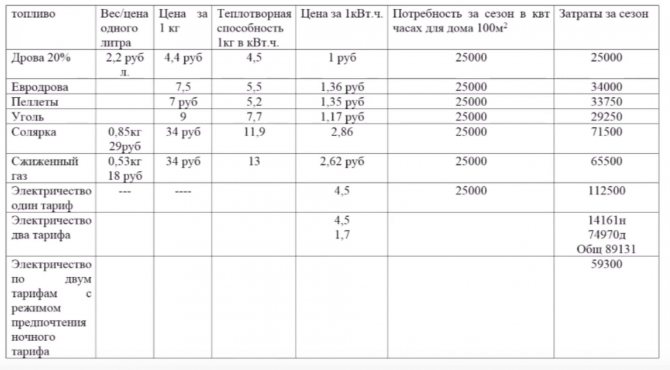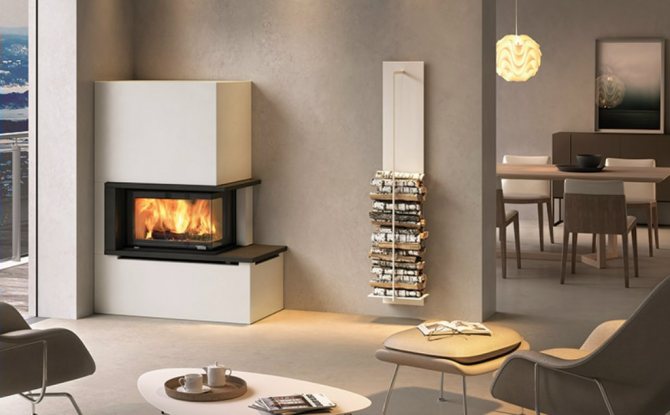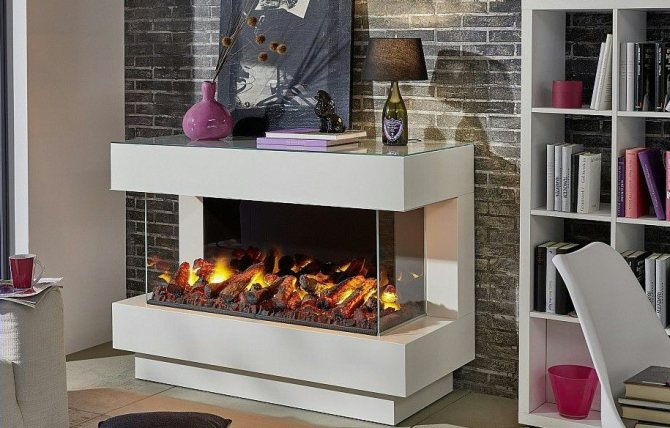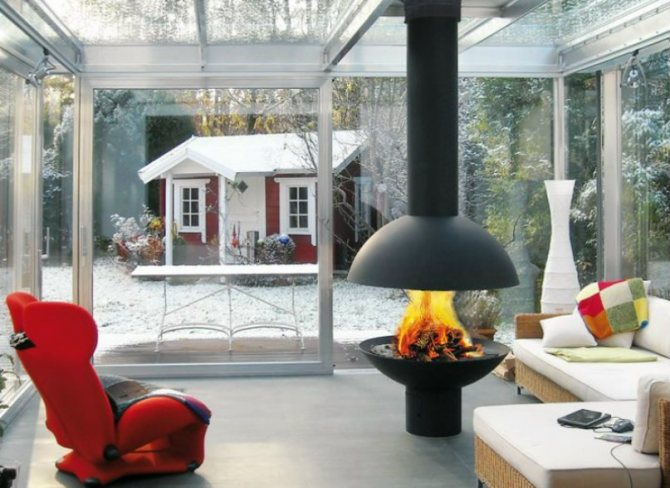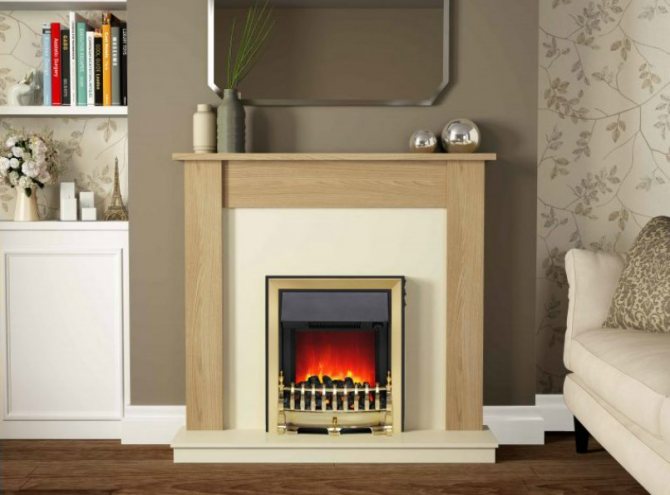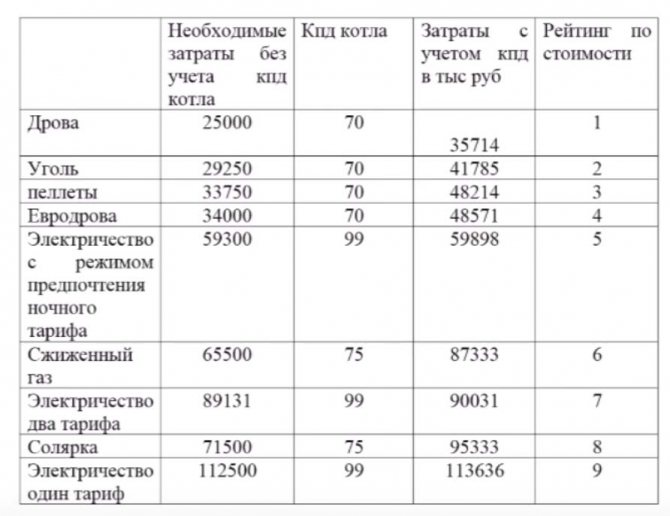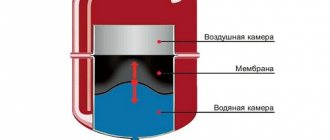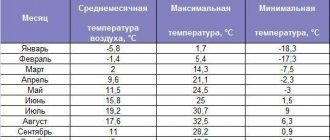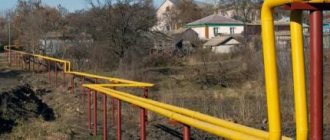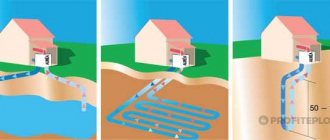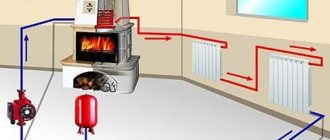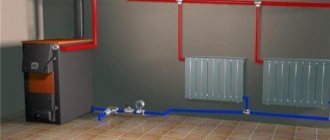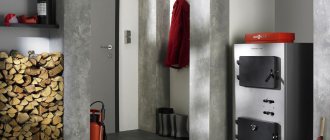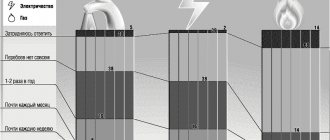As you know, the most efficient energy source for the heating system of a private house is mains natural gas. In addition, modern automated boiler equipment makes the use of gas simple and as safe as possible. But how to ensure cheap heating of the house if in the foreseeable future it is not possible to connect the house to the gas main?

The cheaper it is to heat a private house - we are looking for ways
Energy carrier selection principles
Economical heating of a private house is based on the cost and availability of the heat carrier. When choosing, one should be guided not only by the current situation (for example, the opportunity to get coal or diesel fuel at prices below the market average or receive free woodworking waste), but also sensibly assess the prospects.
If the house is without gas, you need to choose at least two alternative energy sources - for the main and backup heat source. This approach allows you to protect the house from serious problems associated not only with the low temperature in the living quarters, but also with the defrosting of the water heating system.
Before comparing the efficiency of energy carriers (excluding main gas), one should single out those types of fuel that are maximally available to the average consumer.
For example, a solar collector should be taken out of line, since it can be seriously considered only as an additional source of energy due to the fact that there are not many sunny days per year in the main territory of Russia, and besides, the equipment is not cheap.
Also, for now, let's leave the heat pump aside - it extracts free energy, but to get it, you need to use electricity. Plus, the system is difficult to install and requires serious costs for professional calculation and construction.
Thus, the list of available coolants is included
:
- liquefied gas in cylinders (installation of a gas tank requires a one-time investment of serious funds);
- diesel fuel (diesel fuel);
- electricity;
- ordinary firewood;
- coal;
- pellets;
- eurowood.
Attention! If there is access to such fuels as cheap peat briquettes, etc., their performance can be calculated for comparison using the method below.
Gas heating
Despite regular price increases, gas remains one of the most economical ways to heat a private house. Therefore, if a gas pipeline passes nearby, do not even hesitate. It's another matter when the highway is far away, because each additional meter increases the cost of the already expensive installation work.
Double-circuit gas boiler - pros and cons
It should also be taken into account that the amount of natural gas is steadily decreasing, which will lead to new increases in tariffs for it. Whether the blue light will remain as beneficial in the short term is a big question. Therefore, many are already looking for a way to organize economical heating of a private house without using gas.
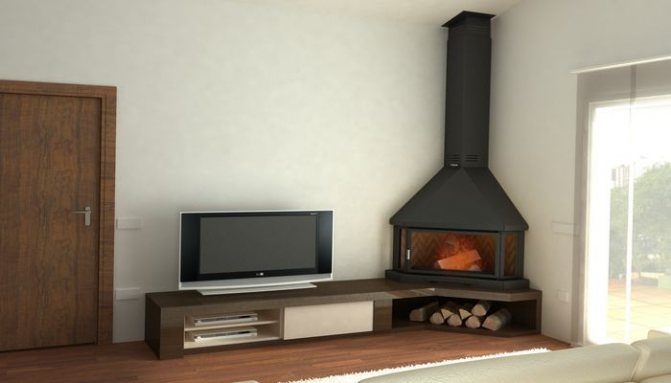

Fuel cost calculation
To decide how to heat your home cost-effectively, you need to calculate the consumption of each available fuel.
Before proceeding with the calculations, it is important to understand the units of measurement of the amount of energy carrier and bring them into conformity, so as not to compare cubic meters with kilograms. In addition to electricity, all other fuels can be measured in kilograms.
Finding out the best way to heat a country house, it is useful to draw up the following table
:
| Energy carrier | Cost 1kg | Calorific value (kW / h for 1 kg of fuel) | Cost of 1 kW / h | The amount of heat required for a house of 100 m2 per heating season (kW / h) | Estimated costs per season | Boiler efficiency | Real costs per season |
| Propane | 13 | 21600 | 0.9 | ||||
| Diesel fuel | 11.9 | 21600 | 0.85 | ||||
| Firewood | 4.5 | 21600 | 0.75 | ||||
| Coal | 7.7 | 21600 | 0.75 | ||||
| Pellets | 5.2 | 21600 | 0.8 | ||||
| Eurodrova | 5.5 | 21600 | 0.75 | ||||
| Electricity (single rate scheme) | — | 21600 | 0.99 | ||||
| Electricity (multi-tariff scheme) | — | 21600 | 0.99 |
To choose the most economical heating of a private house, fill in the empty columns in the table.
This is done as follows
:
- Column 2. The cost of each energy carrier is entered, focusing on the current prices in the region of residence or the price at which you have the opportunity to get this fuel. Do not forget to convert units of measurement to kilograms (excluding electricity).
- Column 4. To calculate how much 1 kW of received heat energy will cost, it is necessary to divide the price of 1 kg of fuel by the specific calorific value (divide the value of column 2 by the value of column 3).
- Column 5. This is an approximate value (the length of the heating season is 180 days, the average heat consumption per hour is 5 kW for a house of 100 m2, hence 5 × 24 × 180 = 21600 kWh). Replace it with a figure obtained from an accurate thermal calculation of your home.
- Column 6. Multiply the values in columns 4 and 5 to calculate the estimated cost per season.
- Column 8. Estimated costs must be divided by the efficiency factor of the boiler unit, since fuel consumption directly depends on the efficiency of the equipment.
So, by comparing the indicators in the last column, you can determine the cheaper it is to heat the house in your case.
However, when looking for the most economical way to provide warmth in your home, you need to take into account a number of other points so as not to be disappointed in your choice as a result.
Ease of use
The heating system must be not only efficient and economical, but also comfortable to operate. The less hassle it is, the better, since the effort to keep it functioning is an indirect heating cost.
The convenience of using the fuel chosen to heat the house is assessed against very specific criteria.
:
- the complexity of servicing the heat source, its maintainability;
- the need for fuel storage and what is required for this;
- convenience of everyday use (fuel supply, etc.).
Note! Evaluating fuel according to the above criteria should take into account the characteristics of boiler units, etc. For example, a long-burning coal-fired boiler is incomparably more convenient than a conventional brick solid-fuel furnace. That is, first decide on the type of heater that you can afford.
Service
:
- The undoubted leaders are electric boilers, They are durable, the maximum they may require is sometimes to clean the oxidized contacts.
- Propane gas boiler - the equipment is unpretentious, cleaning the igniter, burner, etc. it takes about once every two years.
- Pellet boiler. Several times a year you will have to clean the combustion chamber, once a year you will have to clean the chimney.
- Coal and wood-fired boilers, stoves - regularly require ash removal, but this indicator strongly depends on the design of the heater and can range from once a day to once every two months or more. May need frequent chimney cleaning.
- Diesel fuel boiler. Depends on the characteristics of the unit and the quality of the fuel - it can work, not inferior to a gas boiler, or it can constantly "be capricious", as a result of which it is necessary to systematically blow through the nozzles, etc.
Fuel storage
:
- Electricity does not require storage. However, in case of an emergency, it is recommended to have a diesel generator on the farm. And for this unit itself and the fuel for it, it is necessary to take a place.
- Heating in a private house with firewood, euro wood, pellets requires storage space, and in the case of fuel made from sawdust, this must necessarily be a dry, closed room. It is also recommended to store firewood protected from precipitation, since the higher the moisture content of the wood, the lower its heat transfer.
- Coal. Stored in a specially designated place, it gets very dirty and dusty, so it is not very convenient to use.
- Gas cylinders. They require storage in a separate building, fire safety measures must be taken. Preference should be given to an underground reservoir - a gasholder.
- Containers with diesel fuel. They are stored in a separate room in the boiler room, away from home, as the fuel has a strong unpleasant odor. However, today it is not uncommon for a tank with diesel fuel to be mounted underground, like a gas tank. This makes the system more convenient to use, but at a higher cost.
Ease of use
:
- It is most convenient to heat with electricity, since the heating equipment does not require any intervention.
- Pellet boilers are filled with fuel about once every two weeks or less often (depending on the volume of the bunker), with about the same frequency they change the cylinders when heating with liquefied gas. A long-burning coal boiler can also operate on one refueling for 1-2 weeks.
- The diesel boiler should be checked regularly, especially if the fuel quality is poor.
- Solid fuel boilers require loading the firebox 1-3 times a day.
Give your own rating from 1 to 5 for each type of fuel (or heating unit) in all the above categories. And determine for yourself whether the most economical heating is always preferable to the more expensive but convenient one.
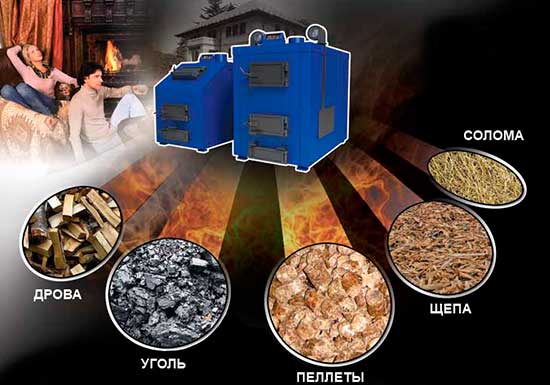

We figure out how to heat a country house (cottage) without gas
When choosing cheap heating of a private house, also pay attention to such a characteristic of the boiler unit as energy independence. If it is decided to provide heating of a private house without gas using an electric boiler, for example, a solid fuel non-volatile boiler or stove should become a duplicate heat source.
Why is it cheaper to heat a house? Heating for a penny!


Along with electricity, thermal energy has become a consumption item for us, if not the main one in utility costs, then definitely significant. Along with the Europeans, we are beginning to get used to the comfort temperature of 20 degrees Celsius. Such a temperature is unlikely to be called comfortable. But if you heat your household at your own expense, then for sure for a couple of three, or even five thousand rubles a month, you are ready to get used to dress warmer while under your own roof. If you have central heating, then it is not as cheap as we wanted it for a long time, there are no miracles and we have to pay for the received CHP or boiler energy, pay in full and even with the delta. After all, it is necessary to pay salaries and it is necessary to provide a chain of intermediaries with profit, to cover the heat losses arising in the little insulated and extremely long, inherited in a large part from the Soviet Union. In this case, finally, we have the opportunity to install heat meters, they are quite affordable at a cost, and besides that, we stop paying for losses, and pay only for what we consume.
Sooner or later, I think we will have to deliberately or forcibly forget about these benefits and remember the heat supply of individual houses or small groups of houses with individual boiler houses. To date, there are not many housing projects relying on main heat carriers.All housing with a comfort or elite prefix is designed with its own boiler house, in most cases, a gas boiler house. Today, the presence of main gas already almost automatically means the presence of heat obtained from this gas. In terms of price, it is the cheapest fuel for heating purposes and has no competitors.
But there is not a big nuance, is it possible for you to get this type of fuel and, if so, for what means to get it. In some localities, bills for connecting the gas supply negate all the benefits of this type of heating. Everything is in the power of the monopolist and as much as he considers necessary he asks, thank God that gas prices are regulated more centrally and the issue of tariffs is a painful and political issue. Gas tariffs, including, most likely, will soon show us their marathon, but today they are out of competition in terms of heating.
And what should we do if our house is conditional 100 m 2, although we, like no one, strive for huge dwellings, often numbering in hundreds of squares, many of which we cannot afford. And so let's take our living area 100 square meters. From numerous sources, we reduce the need for heat of 0.1 kW / h per m2, that is, to heat a house of 100 m2, we need a heat source with a capacity of 10 kWh, taking into account the efficiency of the boiler, and with some margin it can be either 12 kW or 9 kW ... If we decide to be heated with electricity, then this is an 8-9 kW electric boiler, in the case of a wood-burning appliance, it is more likely a 12 kilowatt device.
While power is becoming less and less clear, it is not easy to decide on the type of fuel. This is a serious question and requires an assessment of accessibility. If you live in an area surrounded by logging, sawn timber production or yourself in this field of activity, then of course your option is wood, it will be firewood or wood briquettes, euro firewood is up to you, again, based on availability and cost. It is also worth paying attention to such type of fuel as pallets. Let's just say, if the boilers, they are called TT by the way, are solid fuel and there is simply a great selection of them, they are mostly omnivorous and can be heated with both wood (briquettes, euro wood) and coal and even peat, briquetted of course. Heaters are not divided into a couple of types, some work as fireplaces or stoves and are suitable for small and adjacent rooms or as boilers with a water circuit. In the case of TT devices, you need to imagine that in the case of permanent residence, you need to be ready to combine your activities with the activities of a stoker and a loader sometimes. But there are, of course, machines that may not require your attention for a whole day, and sometimes for several days. These include devices operating on pallets, wood chips, fine coal, coal vending machines. But all of them are not very cheap from 200 thousand rubles today, August 18th, sometimes they are very capricious about the quality of fuel.
And by analogy with coal and wood, it is possible to be heated with diesel fuel.
This is more expensive in terms of fuel, cheaper or equal to the cost of budgetary TT boilers. Diesel devices are very unpretentious and practically do not require attention. Some users do not turn off such boilers all year round and do it only for infrequent maintenance. Most of them are universal and when changing the burner they can burn main gas or bottled gas. The topic of fuel for such burners is open and is not limited to the purchase of diesel at a gas station, although this is an option when it suddenly became impatient and there was no need to order a fuel truck or a dump truck with pallets. With an increase in the values on the refueling display, there are options for purchasing fuel, so to speak, alternative ones. For example, quite tolerable quality fuel obtained from waste of petroleum origin, waste oil, for example, is distilled into fuel that satisfies even diesel engines of imported cars with its quality and characteristics, so that it is quite suitable as fuel for a diesel burner.
The next type of fuel that allows you to heat housing is liquefied gas, propane, for example, is a familiar bottled gas, it can be in conventional cylinders or in huge containers, the so-called gasholders. These same gasholders are very expensive, and the more they are, the more expensive.For example, a gas tank on an ordinary trailer, mobile up to 600 liters, can be purchased from 150 to 270 thousand rubles, and a gas tank for 6000 liters will cost about 400 thousand, depending on whether it is underground or above ground. And even if you decide to install a gas tank, then you need to look for a gas supplier who, preferably, does not really want to deceive you, so it will be all the same to deceive you. The first thing to do is to refuse from the service of the gas tank is unnecessary and the reaction to your refusal will tell you a lot. Second, one should not forget about such an effect as confusion of the container, gas, liquefied is a mixture of gases, for example, propane or methane with necessarily butane gas. Butane burns slightly differently than propane, and at low temperatures, even at minus one degree, it turns into a liquid state. To make it return to a gaseous state, it must be heated, this is already a cost and the heating system also costs money. In addition to butane, believe me, at the bottom of the tank you will find just banal water, and for it, you may also pay a couple of times at the price of fuel. Do not forget about the danger of gas in the event of a leak, has a bad habit of finding holes and accumulating in them, for example, to accumulate in your well or well. Boiler structures are often arranged above the well. I also don’t think that it makes sense to contact 50 liter cylinders, this is a constant search for refueling these cylinders and, by the way, a rather slow refueling, a frequent change of 100% will lead to leaks. Heating with electricity. Cheap, probably the cheapest and most affordable equipment.
If your home is more than a hundred meters, then you will need additional power and it is good if they are allocated to you. You may need a three-phase network. It is capricious about the quality of the current and the network in particular. If your neighbors are also warming themselves from the outlet, then all of you may not have enough and the voltage in the network will drop. The cheapness of a heating device, a boiler, is more than offset by electricity tariffs. So, as a backup source, the option is not bad, for example, if heating is turned on during the second tariff, which, as a rule, is twice as cheap as the main one. Precisely as a backup or even an emergency source of heat, it justifies itself.
It is too early for us to consider such an option as a heat pump, if abroad the governments of the countries in every possible way promote and generously subsidize "refrigerators vice versa", then in our country such devices, in principle, will never be able to pay off due to the enormous cost, which is additionally burdened by customs duties. The idea is interesting, but it has an extremely low efficiency, a large amount of work in terms of installation, and a high cost. In the future, we will still see the development of this segment, maybe it will absorb something new, and we will see a hybrid with high efficiency and an acceptable price. Hydrogen heating, promoted by an Italian company, and even, in my opinion, they went on sale has a prospect of development, but so far damp is expensive and controversially profitable, due to the high cost of producing hydrogen. The energy spent on hydrogen production in no way gives you free fuel from water.
There are, of course, a few more exotic heating methods, such as burning waste oil and even car tires and other waste and frankly garbage. There are environmental issues to this topic and there are many of them, although in a number of countries the problem of garbage and heating has been solved quite successfully. And as it seems, the prospect of heating, and maybe the receipt of electricity will be associated with waste, because there are a lot of them, so to speak, they really interfere and so far are not worth anything.
Equipment for burning the same waste oil is quite expensive, for example, only a German-made burner will cost about 100 thousand rubles and this is without a boiler, but the price of fuel covers all costs.
| Type of fuel | Weight / price of one liter | Price of 1 kg of fuel | Calorific value 1kg in kWh | Cost of 1 kW | Requirement per year for 100m2 | Fuel costs per year. |
| firewood | 2 | 4 | 4,5 | 1rub | 25000 | 25000 |
| Pallets, ruff briquettes, | 8 | 5,5 | 1,4 | 25000 | 35000 | |
| Peat, briquettes | 7,5 | 4,5 | 1,6 | 25000 | 41000 | |
| Liquefied gas | 0,5 22r | 44 rub. | 12 | 3,67 | 25000 | 9666,7 |
| Diesel refueling diesel not refueling | 0.86 / 42r 0.86 / 26r | 48,8 30,23 | 14 14 | 3,48 2,16 | 25000 | 87000 54000 |
| Uh second tariff | 2,2 | 25000 | 50000 |
When choosing a heating system and specifically what you will heat with, you also need to take into account such factors as convenience and storage, storage of fuel. Firewood must be chopped and stacked in the required quantities in a woodpile, pallets require a dry, ventilated room, coal accompanies a large amount of coal dust, gas leaks, diesel fuel smells if spilled, electricity can generally shock, be careful.
All letters above are absolutely personal opinion of people close in spirit, an excellent group, LLC "Elkab-Ural", LLC "Elkab". We will be happy to advise and help you make the right decision to purchase only the highest quality cables and wires any day.
← Back
Boiler unit to heat the house
When choosing the more profitable to heat the house, one should not forget about the costs of installing the heating unit. It is not always important how cheap an energy carrier is, since the equipment for using it (or generating it, if we are talking about solar energy, etc.) can be expensive. Let's give an approximate range of prices for heating equipment of different types in order to determine which one is more profitable to choose.
Brick oven with a stove. 20-100 tons and more, depending on the size, type, complexity of the structure, the presence of tiled cladding, etc. A well-made stove is ideal for a wooden house; it can last for several decades.
Oil-fired boiler. The cost of the unit is 25-180 tons. Many models are suitable if a house heated with diesel fuel is planned to be connected to the gas main - at the boiler, it is enough to replace the burner and there is no need to install new equipment.
Solid fuel boilers. 20-400 tr. An inexpensive option will require frequent refueling. Long-burning boilers are included in the middle price category. Automated units require a large investment during the installation phase.
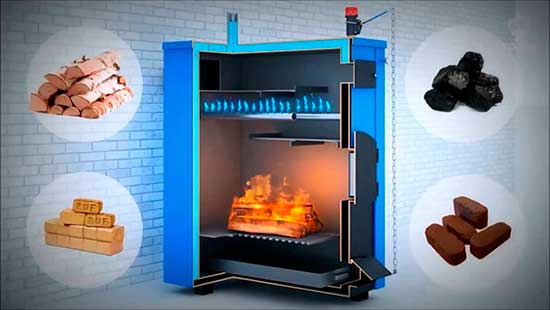

Choosing a boiler unit
Electric boilers. 15-100 tr. depending on the power of the model. If the region has a cheap nightly electricity tariff, it is possible to partially reduce heating costs by installing a heat accumulator complete with an electric boiler. In addition, when choosing how to heat the house, if there is no gas, you can pay attention to other heat sources that run on electricity: infrared heaters, fan heaters, film warm floor, air heating system, etc.
Solar collectors. 15-60 tr. - the cost of flat devices, about 80 tr. - vacuum. The energy of the sun is inexhaustible, but even in areas with a large number of sunny days a year, solar collectors serve only as an additional source of thermal energy for heating or preparing water in the DHW system.
Heat pumps. RUB 200-1500 depending on the complexity of the system. The heat pump takes heat energy from the environment. For its operation, starting energy is required, on average, to deliver 10 kW of thermal energy, it spends 3 kW of electricity - this is high efficiency. But the heat pump is also not universal, since it can operate stably only at an air temperature of at least -15 degrees, and completely loses its performance at -30 degrees. In temperate regions, a heat pump would provide the cheapest heating, if not for a serious initial investment.
Outcomes
Everyone chooses the most economical heating based on specific conditions, there is no universal advice on this matter. A good option is an electric boiler in combination with any other unit, primarily solid fuel.A heat accumulator, to which you can connect several different heat sources, including a solar collector, is a real opportunity to spend a minimum of money on heating.
In addition, one should not forget about high-quality insulation at home. It will be possible to save on fuel only if heat loss is minimized.
Related videos:
Fuel selection criteria
Surely a more or less knowledgeable user already has an approximate rating in his head, in which the energy carriers presented above are arranged in a certain sequence in terms of profitability. If so, then most likely such a rating is based on only one criterion - the cost of fuel.
So, even a person unfamiliar with heating systems intuitively understands that firewood is the cheapest and most affordable, and electricity and gas, for example, are more expensive. As for briquettes and pellets, an opinion has also, as a rule, already been formed - this is an expensive fuel, but due to the increased efficiency, which its manufacturers assert, it is more profitable than cheap firewood.
At the same time, kilograms are confused with liters, and cubic meters with kilowatts. Nobody counts how much heat each type of fuel burns out in an equal volume gives. And also boilers have different efficiency, and the heat given off by the energy carrier is far from being used to heat the house.
And finally, the electric boiler just turned on, set it up once, and forgot about its existence. Firewood needs to be stored somewhere, regularly brought to the boiler room and loaded into the furnace several times a day. Coal with diesel fuel smoke mercilessly, harming the environment and requiring frequent maintenance of the boilers in which they are burned. Etc.
That is why this issue should be considered not only from the point of view of fuel cost, but more globally.
And compare the types of fuel at least according to the following criteria:
- Price. It should be borne in mind that in different regions the cost of one or another energy carrier differs markedly. It is also necessary to reduce this indicator to one measure, preferably expressed in arbitrary units per kilowatt of heat energy supplied.
- Availability. Someone managed to get the available power of the electrical network in 15 kW, while someone has only 3 kW. Not everyone has a gas pipeline near the house, and so on.
- Boiler efficiency. A gas boiler "draws" from the fuel from 90% of the thermal energy contained in it. Wood-burning - on average, about 30% of this same energy is emitted into the atmosphere. Electric - almost nothing wasted.
- Ease of use. The less manipulations it is necessary to perform when using this or that type of fuel, the more convenient it is. This clause is conventionally divided into several subclauses listed below.
- Labor intensity of heating equipment maintenance. The more the furnace and chimney become dirty from the use of fuel, the more often the boiler will have to be cleaned.
- Warehousing. One fuel does not need storage, the other requires a separate storage space.
- Loading. Some fuel burns in the boiler without user intervention, some require regular reloading.
- Environmental friendliness. An important criterion, even if you are not worried about the environmental situation in the world.
It should be understood that evaluating and comparing different fuels for all these criteria will not give an unambiguous result that is fair for all users. Such an algorithm of actions will help determine the most profitable option for the one who will use it. That is why it makes no sense to provide within the framework of this material any tables and graphs with specific numbers, points and ratings. This article, so to speak, is not a fish, but a fishing rod that will help you catch it.
Although the rating, nevertheless, will be. But it cannot be considered objective. Also, one should not take it as the only fair and suitable for all occasions.A more correct decision can be made by considering each type of fuel according to the specified criteria, taking into account, roughly speaking, the local situation.
Electricity
Many users are biased towards this type of fuel. And in vain. It is not worth completely abandoning electric heating as an alternative to natural gas for a number of reasons. Yes. Natural gas is more profitable. But only when he is already in the house. And if it is not supplied, or even passes far from the house, then electric heating is a very serious competitor to it.
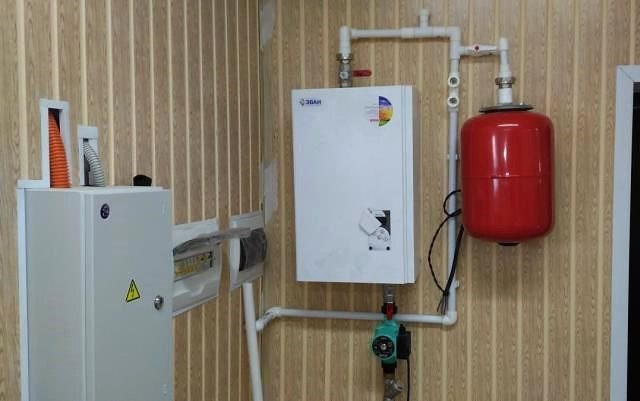

Firstly, electricity is the most convenient energy carrier in all areas. You don't need to store it, carry it around, or load it into the furnace. Secondly, it does not smoke, does not emit harmful substances into the atmosphere and does not clog the chimney system (there is none at all in this case). The efficiency of boilers running on electricity is above 99%, which means that you will not heat the street.
There are two possible arguments against this type of fuel. In places especially remote from civilization, electrification may be absent. It should also be borne in mind that an electric boiler is not a 2 kilowatt electric kettle. Such equipment requires a capacity of 15 kW or more, which can be very expensive to connect, and sometimes impossible due to the peculiarities of local networks.
Many are also scared off by electric heating because of the price of one kWh. However, if you approach the arrangement of the heating system wisely, connect a double tariff and use thermal energy storage devices, heating them at night, as a result, the cost of heating your home will not be so terrible.
Output. Electric heating is beneficial in two ways. First, when there is no access to other types of cheap energy. Secondly, if the heating system based on an electric boiler is designed and implemented wisely.
Stove heating with wood
If the house is built away from gas mains or you do not want to pay for an expensive coolant, you can arrange a wood heating system. This option is ideal from an environmental point of view and does not harm the health of the residents. How does a wood burning stove work?
The principle of operation of this design is simple and straightforward. You buy a stove, put firewood in it, set it on fire. The wood burns and heats up the oven equipment. The stove gives off heat, the air in the room heats up.
With the seeming primitiveness of the design, this heating option has a number of advantages:
- the oven heats up quickly;
- there is no need to buy and install pipes, radiators, pumps;
- the design is reliable, designed for long-term operation, it is difficult to damage it;
- firewood can be purchased inexpensively.
Modern heating stoves bear little resemblance to the well-known potbelly stoves. The design of the furnace is designed so that the installation gives off a lot of heat and can work for a long time from one load.
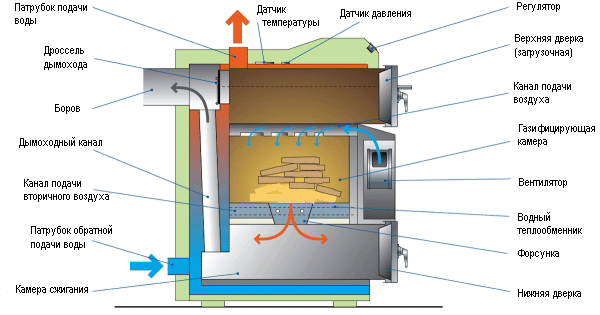

The structure of the firewood boiler.
A boiler can be built into the wood-fired heating system. When choosing a boiler, it is better to focus on a pyrolysis type design. Heat will be generated by the combustion of pyrolysis gases. This type of boiler equipment can function without electricity.
How does a solid fuel boiler work? At high temperatures and in the absence of oxygen, the combustion fuel decomposes into generator gas and solid waste. In this case, it is possible to achieve maximum heat transfer from fuel combustion.
Now about the disadvantages of this type of building heating:
- the oven installation is large enough, you have to think about where to install it; the equipment weighs decently, so you won't be able to install the oven yourself;
- next to the house, you will have to provide a covered room for firewood, it is important that there is enough firewood for the heating period;
- combustion products can be hazardous to health due to improper operation of the furnace device;
- when heating with wood, you will have to provide for a chimney;
- the stove will heat up the room unevenly.
